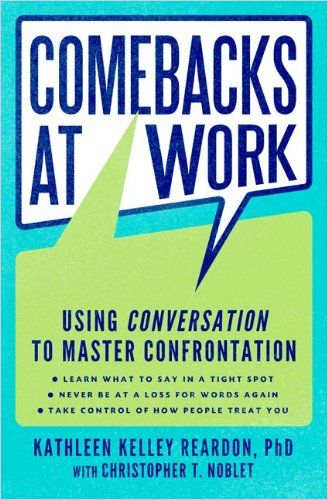“How Do I Address Wrong Things the Right Way?”

Half-hearted nodding, embarrassed silence, professional disregard – and in the end nobody wants to have been the one who did it: Wrong decisions are made not because everyone agrees, but because no one dares to say no. The whole thing has terrible consequences when it comes to business and teamwork, but on top of that it can turn those who have never learned to say no into professional doormats. How do you prevent yourself becoming one?
Successful People Know How to Say No
Here’s a common dilemma: A friend asks you for help, and you comply. The 10 to 15 minutes of your time that your friend requested turns out to be closer to an hour. You feel good about helping, but you also feel bad: You could have used that time on important work that needed completing. Now, you’re further behind.
Lesson One: The more often you say no now, the less often you’ll have to say it the future.

Lesson Two: You are the ultimate judge of your own behavior. Here are some verbal techniques you can use to block manipulation, and encourage productive communication and negotiation.

The “Positive No”
Imagine that you are a police department’s hostage negotiator. An armed man who has just lost his job is holding his wife and children hostage in their barricaded home. He threatens to kill his family and himself unless the authorities turn over the boss who fired him so he can “administer fiery justice.” How do you tell this potential murderer no without jeopardizing everyone in the house?
The professionals who negotiate during such extreme situations know how to refuse in such a way that no one gets hurt. That’s a useful skill, even when lives are not at stake. William Ury, head of Harvard’s Global Negotiation Project, has negotiated agreements that have ended bloody conflicts around the world. Here, he outlines a nimble strategy for delivering a “Positive No” in every situation.

Don’t Know What to Say at All?
Here are some tips and tools that can help you respond more effectively – and without hesitation – to snide comments from insulting, bossy or troublesome co-workers.

“Well, Boss, This Is…”
A “no” to a colleague may be an option, but what about to the boss, who is already thinking about who she or he can or wants to employ after all the upheavals of the last few weeks?
Try to politely decline by explaining the background to your reluctance and offering an alternative! Bosses who lead teams generally don’t want good workers feeling unhappy. Also, managers don’t always know the full context of a situation when they assign projects.

Keep in mind: If your concerns are not taken seriously, you will know afterwards that you, as a critical and motivated worker, may be wrongly invested here.
Confidence Trumps Competence
Power differentials do not only exist between managers and subordinates, but unfortunately still exist between the sexes in 2020. That’s why many women, even the most successful, lack confidence. But with effort, you can change that! Boost your confidence by speaking up and taking strategic steps. The following summaries help to make a difference for women in a male-dominated work environment.










